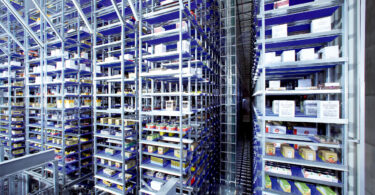
Condition monitoring and predictive maintenance in hydraulic and pneumatic systems
Intelligent fluid power sensors are used in automated part handling, injection molding, hydraulic presses, and CNC machines to monitor important real-time control functions. These intelligent sensors can not only provide information on what’s happen in the moment, but also help predict what will happen in the future, providing valuable information for process improvement and predictive maintenance.
Intelligent fluid power sensors within the hydraulic and pneumatic systems reliably determine pressure, temperature, level, and flow of fluids as well as the position of valves and cylinders. These sensors contribute to process optimization and play a vital role in condition monitoring and predictive maintenance.
For many years, advanced predictive analysis and condition forecasting were just a dream, but now they’re a reality. The growing digitization of production, as well as increasingly powerful methods of data evaluation, permits the leap from monitoring to forecasting. The transition between real-time condition monitoring and predictive condition forecasting is now possible using the data already collected by the sensors. With additional processing of acquired data and correct interpretation, the development of predictive maintenance and condition forecasting is simple.
More than position detection with Magnetic cylinder sensors
SICK cylinder sensors work like any other does to detect and measure the cylinder position. However, these sensors also provide data on the temperature and the usage rate of the cylinder. This information can be collected, tracked, and analyzed, to show trends and irregularities in the production process, making it possible to take action regarding process changes, cylinder wear, and predictive maintenance, making them very smart fluid power sensors.
Versatile diagnostic options with pressure sensors
SICK’s PBS pressure sensors feature diagnostic data and use IO-Link to monitor high- and low-pressure systems. In addition, other errors such as faulty voltage supply or short-circuits, can be monitored, recorded, and evaluated. From the collected data, an assessment of the current system and expected scenarios can then be made.
Flexibility and efficiency
Due to their flexibility and efficiency, hydraulic and pneumatic systems will become increasingly important in the future of mechanical engineering within the consumer goods, packaging, electronics, solar, and automotive industries. The list of applications is endless where intelligent sensors from SICK continue to improve plant and machine availability.
To learn more, visit our website or contact us at info@sick.com.





